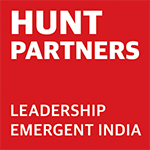Technology is an essential part of our lives today. Its importance is undeniable in today’s fast paced world. The human dependence on technology is only increasing by the day. Advances in technology have shown marked increase in productivity and more efficiency bringing about an ease in working. As a result, it can be said that the web / internet has made the world a close-knit market.
Technology in HealthcareProgressive steps towards a positive change!
Technology has efficiently changed the manner in which healthcare services are being delivered in India. The private sector has primarily aided technology adoption in the Indian healthcare segment. To optimize costs and effectively manage operations, IT solutions are and will become an integral part of process management, patient care and the management information system (MIS) in hospitals.
The convergence of healthcare with upcoming technologies such as cloud and wireless computing will play a key role in improving accessibility and meeting the challenge of manpower shortage. The coming years are expected to witness greater deployment of tools such as telemedicine, teleradiology, hospital information systems (HIS)/hospital management information systems (HMIS), online or electronic medical records (EMR) etc. Leading this change- The All India Institute of Medical Sciences (AIIMS) has recently launched its pre-registration portal for patient’s appointment and admission. They will also be able to check test reports online.
The healthcare sector is poised to embrace cloud computing in a big way in the coming decade. Costeffective cloud based solutions are expected to drive increased adoption of HMIS and EMRs. The various benefits that can be derived, such as easy accessibility (irrespective of geographical location), fewer errors, faster response in times of emergencies and patient convenience among others, will drive increased adoption. Globally, almost 12% of cloud computing services are aimed at healthcare. Apple Health and Microsoft Health vault are already making baby steps in this direction.
To drive improved efficiencies, more hospitals are likely to seek automation for their workforce management, administration, finance, billing, patient records and pharmacies. Along with the growing popularity of hospital digitization, market penetration of picture archiving and communication systems (PACS) is likely to further increase in the coming years.
Wearable fitness tracker - Market set to explode
A lot of companies in the health and wellness space have started using varied advanced technological solutions. These solutions include wearable devices, healthy meal deliveries, doctor consultations, weight loss programs, health products fulfillment, medicine deliveries etc.
When it comes to adopting a healthy lifestyle, new-age consumers are also keen on using technologicallyenabled fitness devices. One such device is the wearable fitness tracker that enables customers to accurately measure their daily levels of activity. With the help of calorie counting applications, they can now correlate their daily food intake with activity levels to get a better insight about their fitness profile.
The wearable market is set to explode in India, with growth of almost 40 %. Most of the market share is held by two firms. GOQii with almost 16 % market share and Xiomi with 10 % market share. GOQii is leading the low end wearable health trackers with most of its share coming from the commercial (Corporate) segment. Fitbit comes with 6.7 % market share and have made exponential growth in 2016; Garmin at 1.4 % share comes in 4th while Huawei comes in at 5th.
Smartphones- Making healthcare smarter!
Mobile is going to play a huge role in healthcare(Mhealth). Apart from preventive healthcare functions that the smartphone handles on its own or does in conjunction with wearables today, the smartphone has the ability to be the hub for everything else too. The holistic healthcare system, right from the ambulance to the hospital records to bill payment, is connected to smartphones. Apps such as Medscape that consolidate a plethora of information for doctors, to innumerable apps that help patients remember the time of their medication- these apps have made smart phones an integral part of healthcare.
The future is here
The healthcare business model in India is evolving to deliver better services to its patients while ensuring that there is minimum legal complexity involved. Best practices from the US and other developed countries could be a point of reference for the Indian healthcare sector.
Given the response generated so far in the Indian market, it can safely be said that the adoption of mobility-led healthcare technologies will act as a catalyst for facilitating accessibility to world-class medical facilities. From first consultations to providing life saving treatments and drugs to patients across the country, healthcare technology can supplement and eventually replace the traditional healthcare service delivery models
